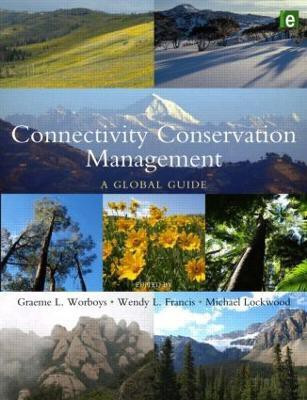Connectivity Conservation Management(English, Paperback, unknown)
Quick Overview
Product Price Comparison
In an era of climate change, deforestation and massive habitat loss, we can no longer rely on parks and protected areas as isolated 'islands of wilderness' to conserve and protect vital biodiversity. Increasing connections are being considered and made between protected areas and 'connectivity' thinking has started to expand to the regional and even the continental scale to match the challenges of conserving biodiversity in the face of global environmental change. This groundbreaking book is the first guide to connectivity conservation management at local, regional and continental scales. Written by leading conservation and protected area management specialists under the auspices of the World Commission on Protected Areas of IUCN, the International Union for the Conservation of Nature, this guide brings together a decade and a half of practice and covers all aspects of connectivity planning and management The book establishes a context for managing connectivity conservation and identifies large scale naturally interconnected areas as critical strategic and adaptive responses to climate change. The second section presents 25 rich and varied case studies from six of the eight biogeographic realms of Earth, including the Cape Floristic Region of Africa, the Maloti-Drakensberg Mountains, the Australian Alps to Atherton Corridor, and the Sacred Himalayan Landscape connectivity area (featuring Mount Everest.) The remarkable 3200 kilometre long Yellowstone to Yukon corridor of Canada and the United States of America is described in detail. The third section introduces a model for managing connectivity areas, shaped by input from IUCN workshops held in 2006 and 2008 and additional research. The final chapter identifies broad guidelines that need to be considered in undertaking connectivity conservation management prior to reinforcing the importance and urgency of this work. This handbook is a must have for all professionals in protected area management, conservation, land management and resource management from the field through senior management and policy. It is also an ideal reference for students and academics in geography, protected area management and from across the environmental and natural sciences, social sciences and landuse planning. Published with Wilburforce Foundation, WWF, ICIMOD, IUCN, WCPA, Australian Alps and The Nature Conservancy.


